[First published in 2010.]
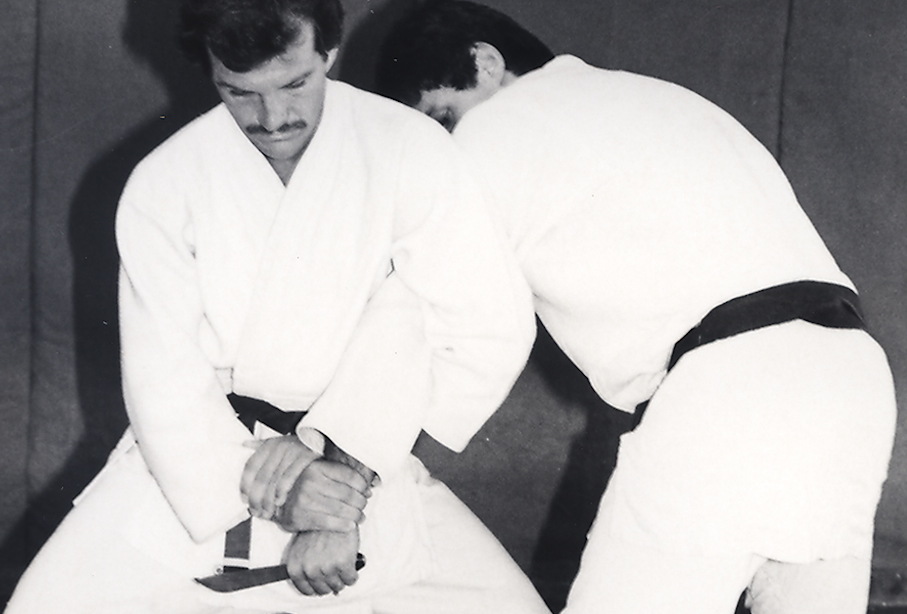
Rolls Gracie in a demonstration with his student Maurição Gomes. Rollsgracie.com
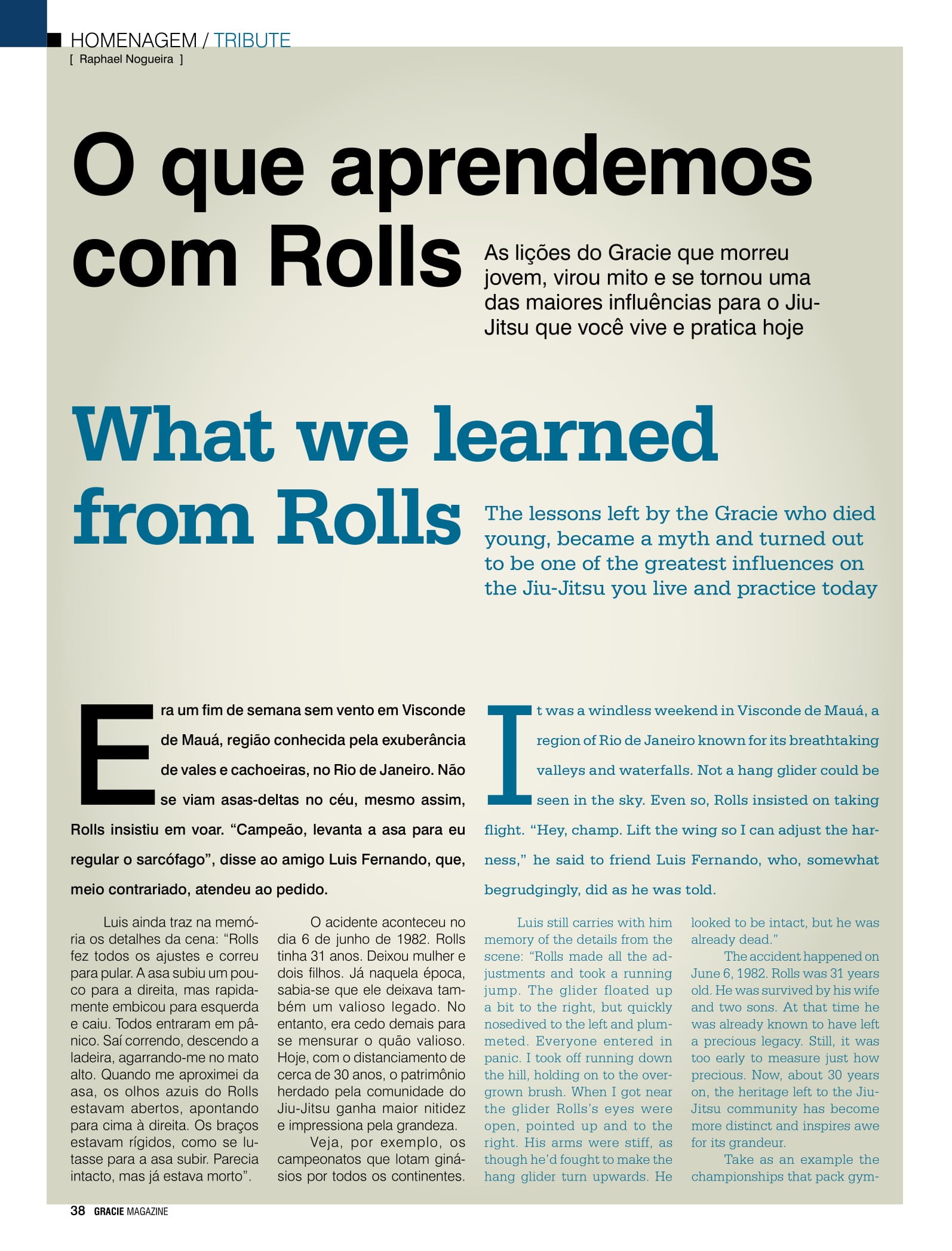
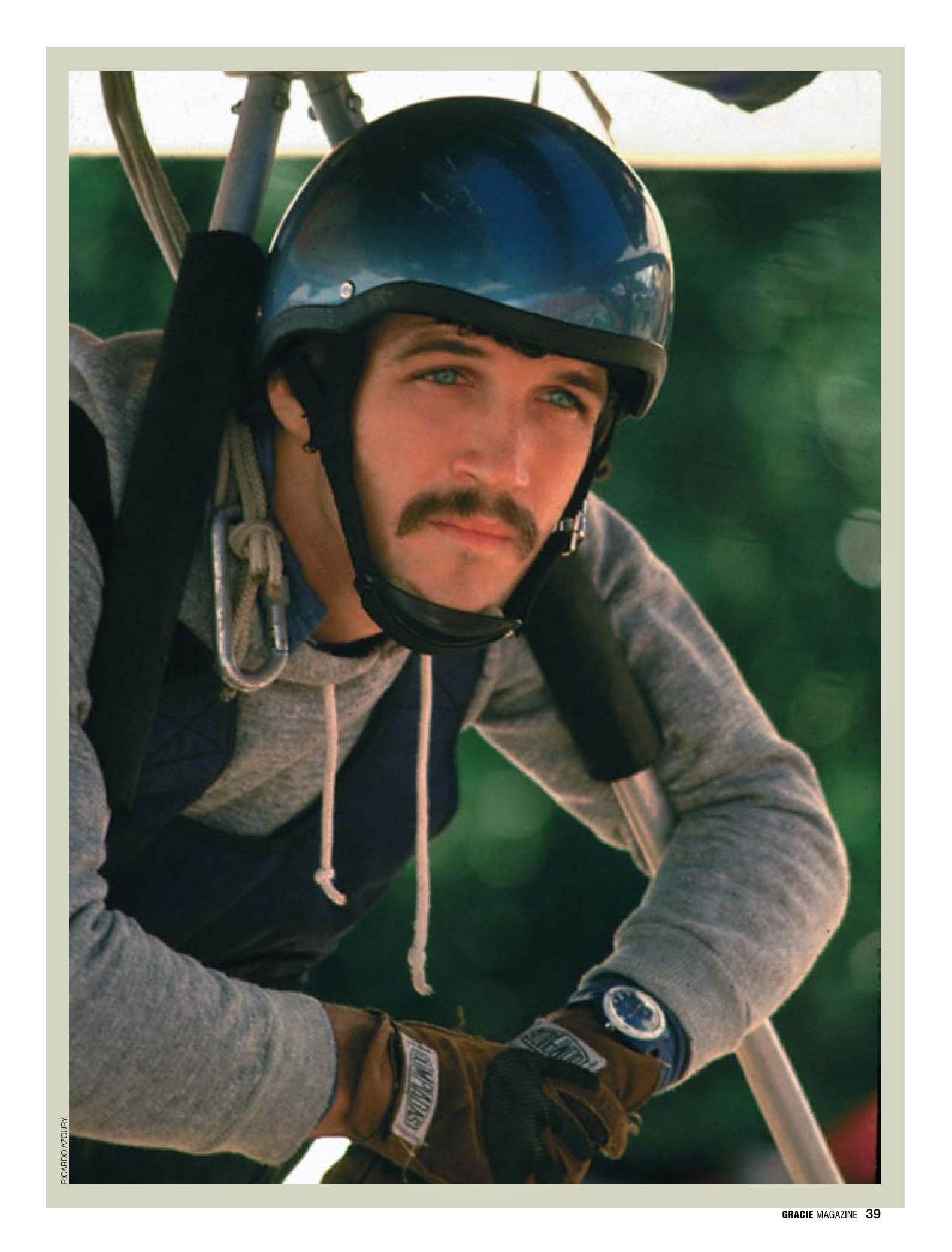
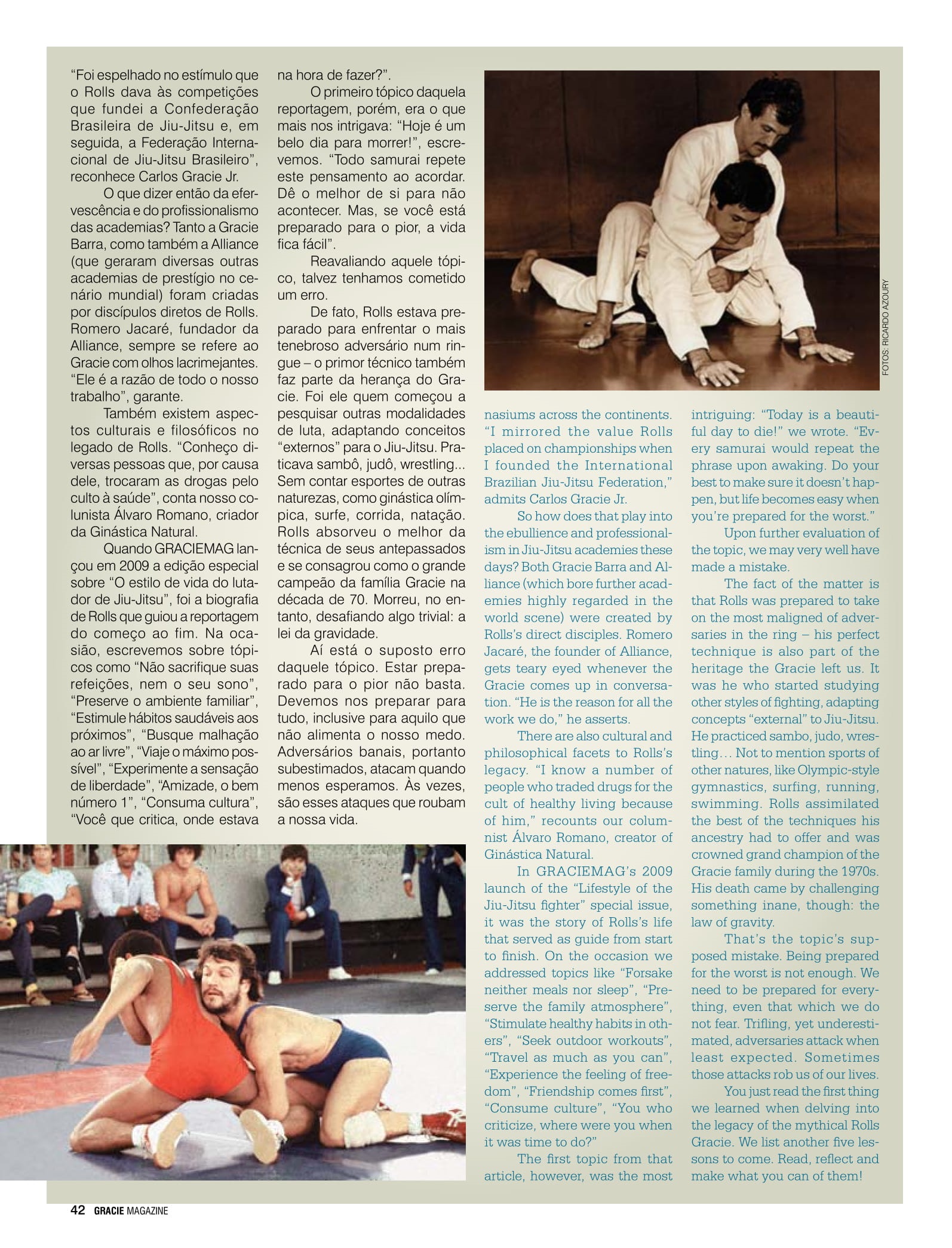
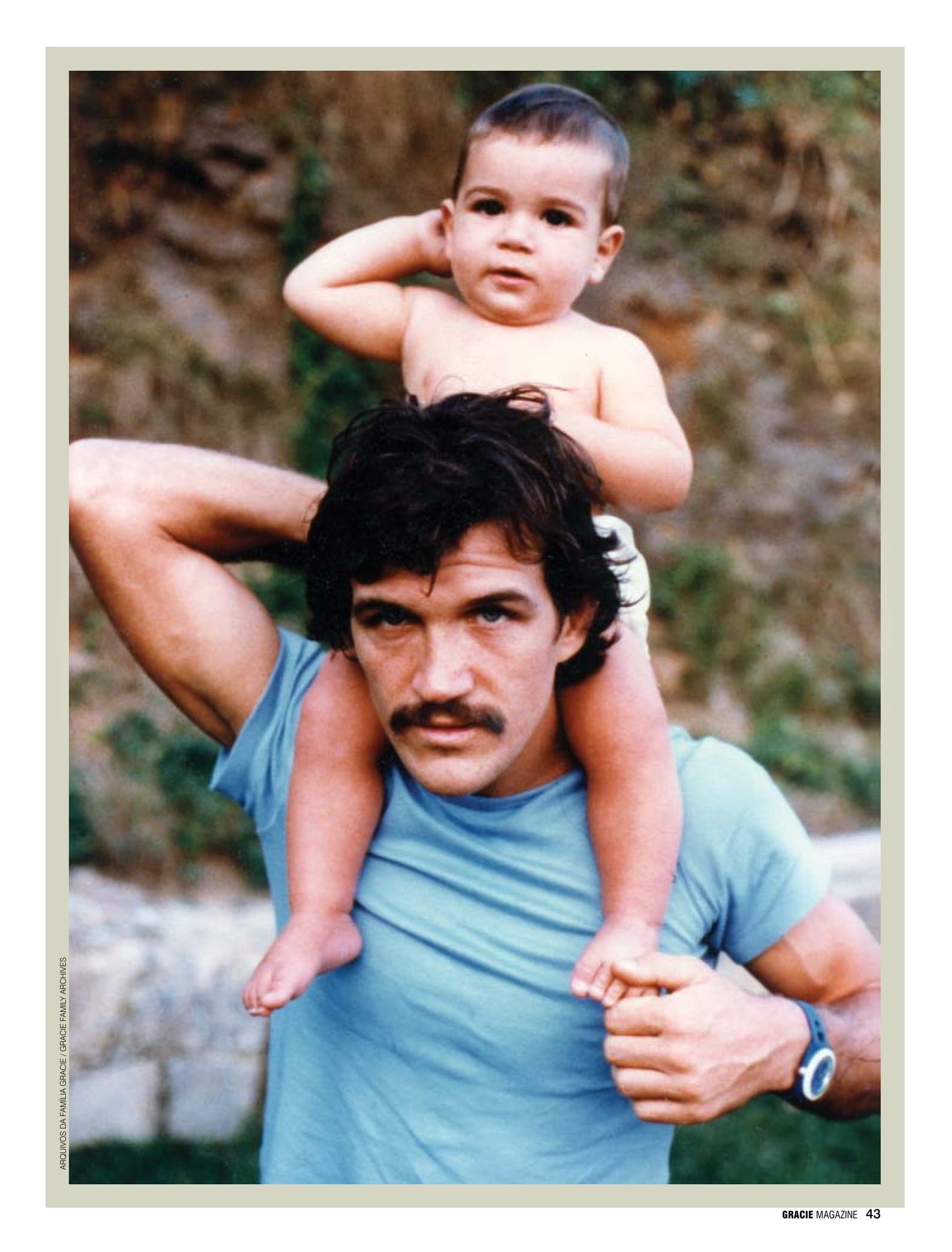
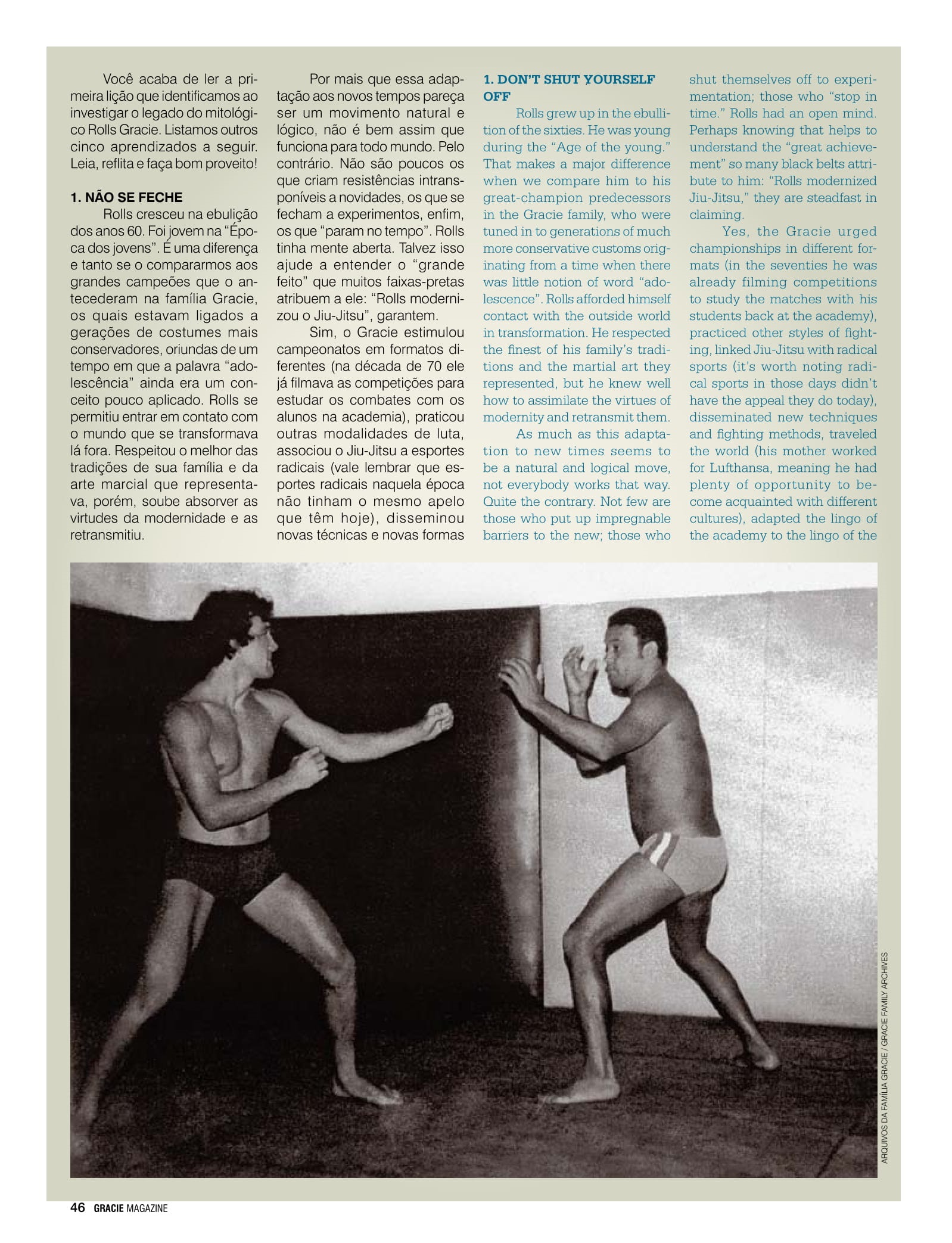
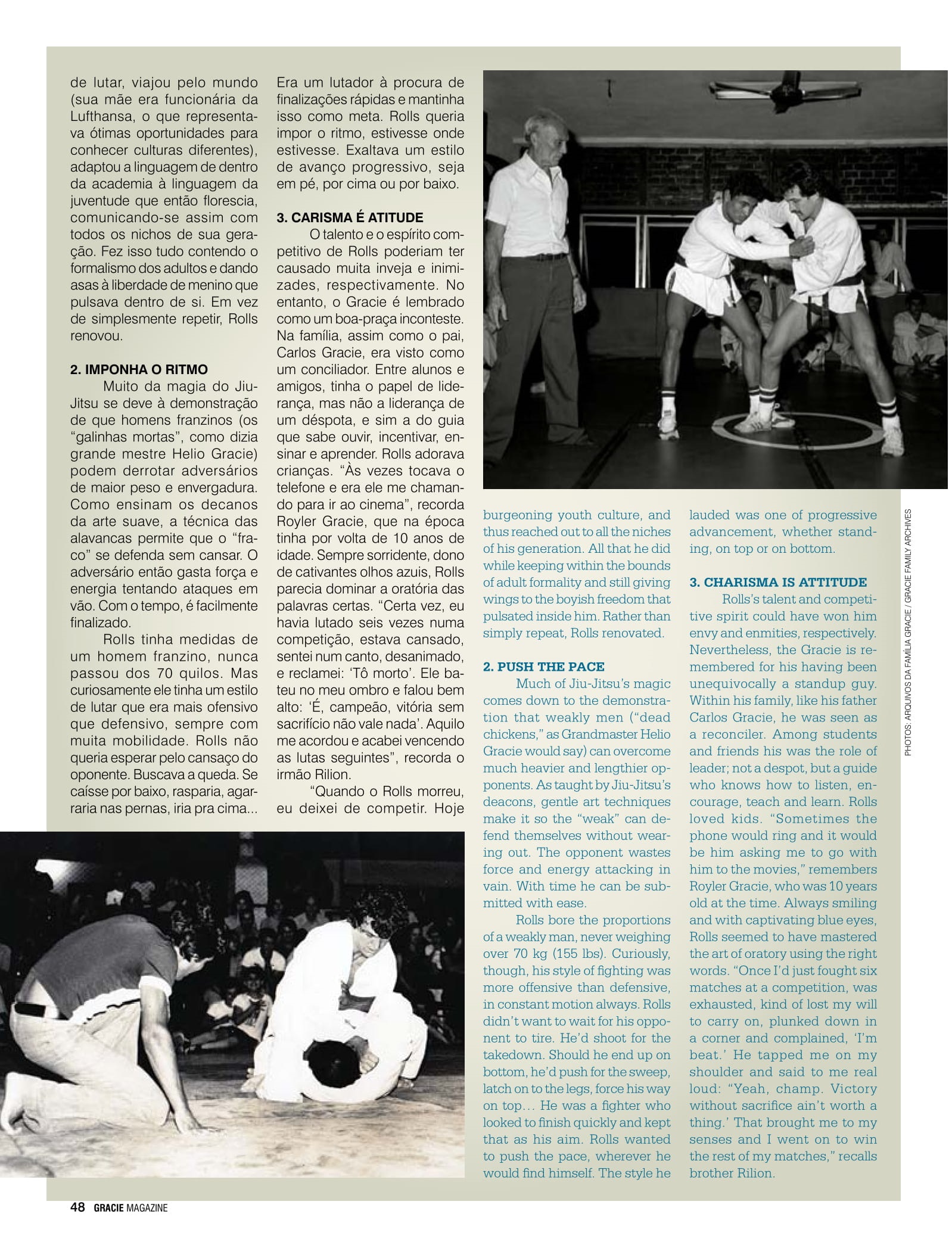
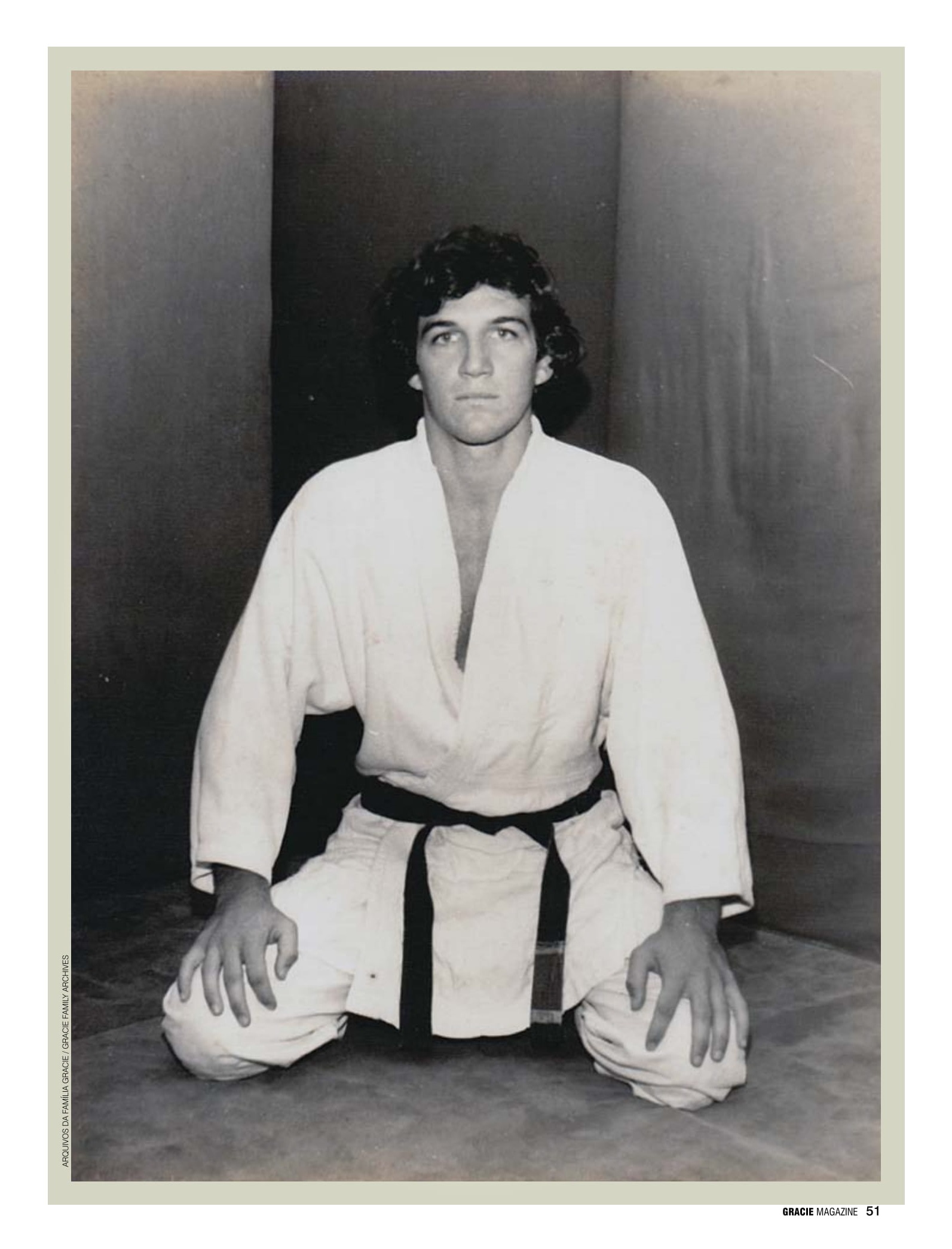
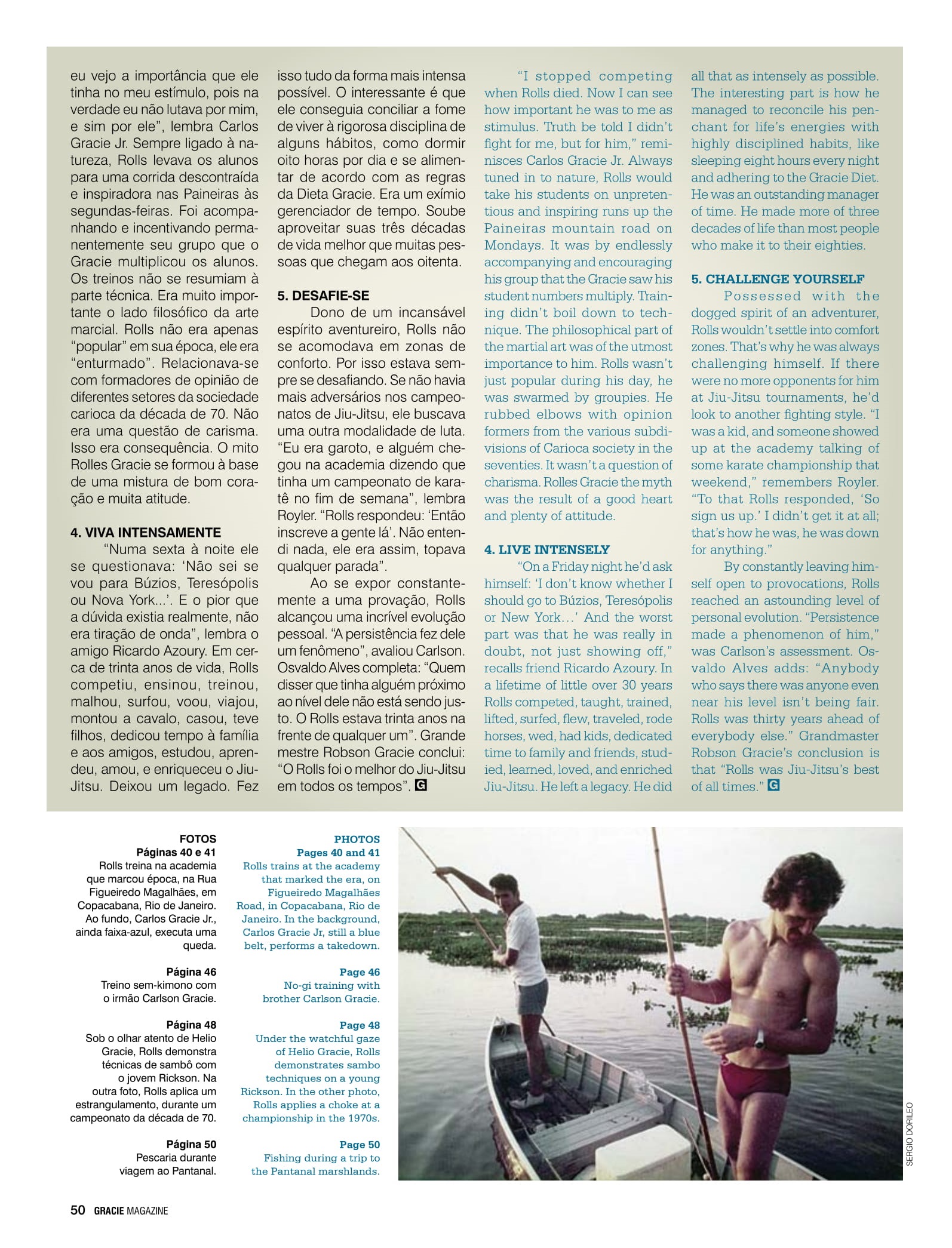
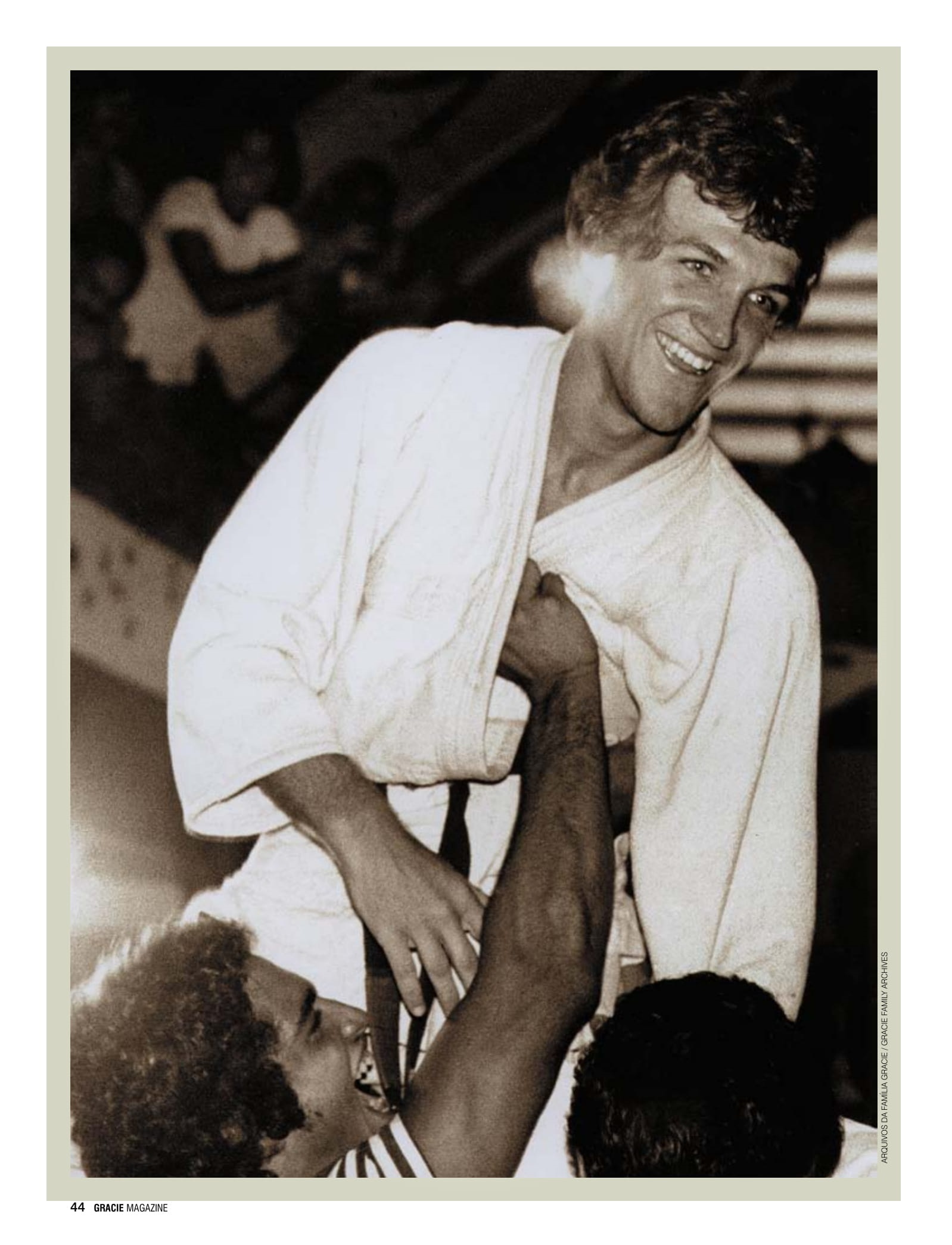
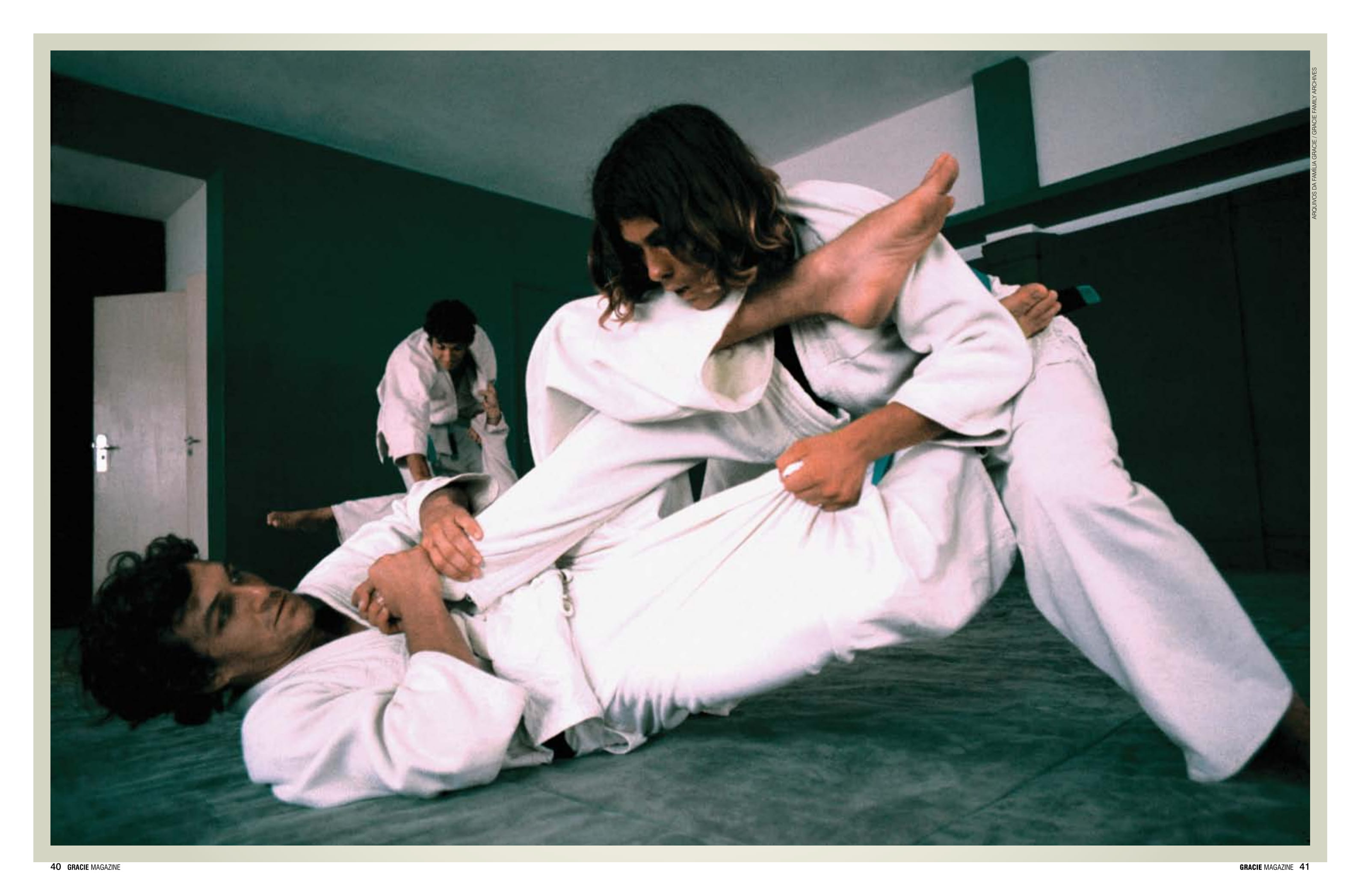
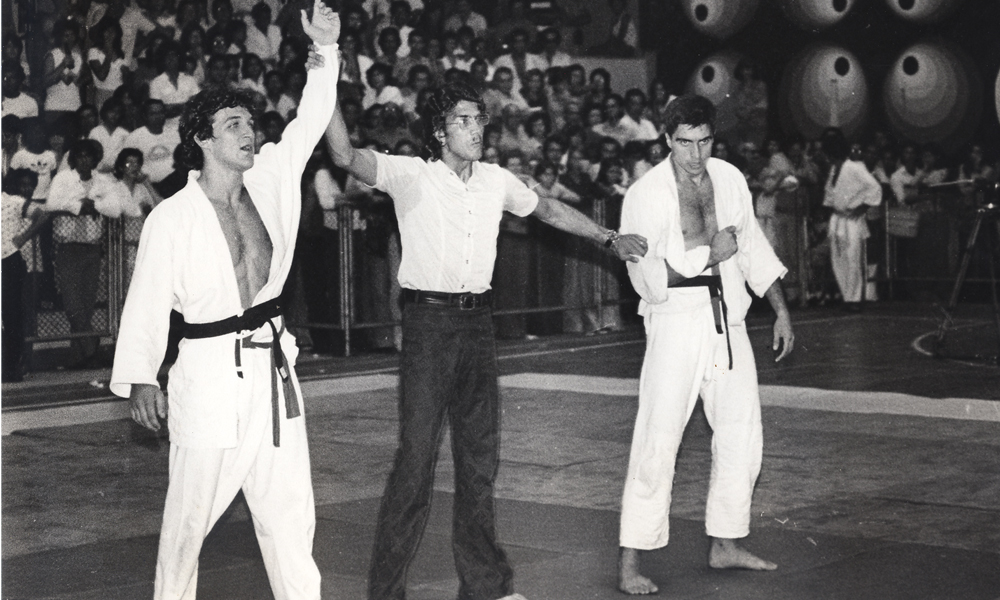
RollsGracie.com
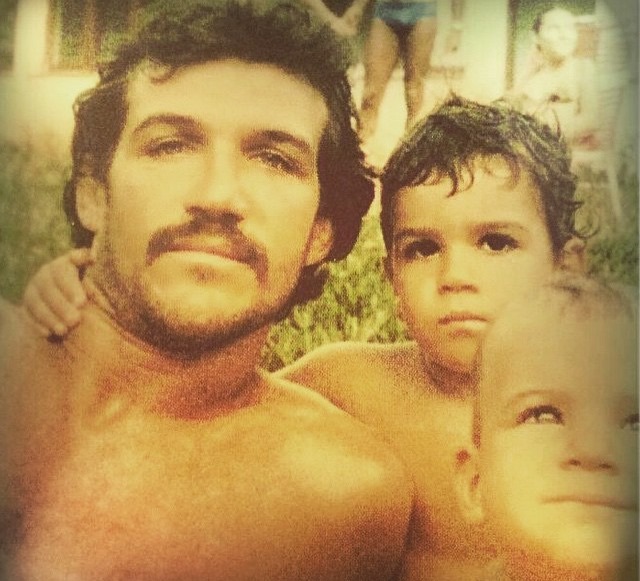
Rolls Gracie with sons Rolles and Igor: He had the biggest heart in the family, according to Helio Gracie. RollsGracie.com
It was a windless weekend in Visconde de Mauá, a
region of Rio de Janeiro known for its breathtaking
valleys and waterfalls. Not a hang glider could be
seen in the sky. Even so, Rolls insisted on taking
flight. “Hey, champ. Lift the wing so I can adjust the harness,”
he said to friend Luis Fernando, who, somewhat
begrudgingly, did as he was told.
Luis still carries with him
memory of the details from the
scene: “Rolls made all the adjustments
and took a running
jump. The glider floated up
a bit to the right, but quickly
nosedived to the left and plummeted.
Everyone entered in
panic. I took off running down
the hill, holding on to the overgrown
brush. When I got near
the glider Rolls’s eyes were
open, pointed up and to the
right. His arms were stiff, as
though he’d fought to make the
hang glider turn upwards. He
looked to be intact, but he was
already dead.”
The accident happened on
June 6, 1982. Rolls was 31 years
old. He was survived by his wife
and two sons. At that time he
was already known to have left
a precious legacy. Still, it was
too early to measure just how
precious. Now, about 30 years
on, the heritage left to the Jiu-
Jitsu community has become
more distinct and inspires awe
for its grandeur.
Take as an example the
championships that pack gym-
nasiums across the continents.
“I mirrored the value Rolls
placed on championships when
I founded the International
Brazilian Jiu-Jitsu Federation,”
admits Carlos Gracie Jr.
So how does that play into
the ebullience and professionalism
in Jiu-Jitsu academies these
days? Both Gracie Barra and Alliance
(which bore further academies
highly regarded in the
world scene) were created by
Rolls’s direct disciples. Romero
Jacaré, the founder of Alliance,
gets teary eyed whenever the
Gracie comes up in conversation.
“He is the reason for all the
work we do,” he asserts.
There are also cultural and
philosophical facets to Rolls’s
legacy. “I know a number of
people who traded drugs for the
cult of healthy living because
of him,” recounts our columnist
Álvaro Romano, creator of
Ginástica Natural.
In GRACIEMAG’s 2009
launch of the “Lifestyle of the
Jiu-Jitsu fighter” special issue,
it was the story of Rolls’s life
that served as guide from start
to finish. On the occasion we
addressed topics like “Forsake
neither meals nor sleep”, “Preserve
the family atmosphere”,
“Stimulate healthy habits in others”,
“Seek outdoor workouts”,
“Travel as much as you can”,
“Experience the feeling of freedom”,
“Friendship comes first”,
“Consume culture”, “You who
criticize, where were you when
it was time to do?”
The first topic from that
article, however, was the most
intriguing: “Today is a beautiful
day to die!” we wrote. “Every
samurai would repeat the
phrase upon awaking. Do your
best to make sure it doesn’t happen,
but life becomes easy when
you’re prepared for the worst.”
Upon further evaluation of
the topic, we may very well have
made a mistake.
The fact of the matter is
that Rolls was prepared to take
on the most maligned of adversaries
in the ring – his perfect
technique is also part of the
heritage the Gracie left us. It
was he who started studying
other styles of fighting, adapting
concepts “external” to Jiu-Jitsu.
He practiced sambo, judo, wrestling…
Not to mention sports of
other natures, like Olympic-style
gymnastics, surfing, running,
swimming. Rolls assimilated
the best of the techniques his
ancestry had to offer and was
crowned grand champion of the
Gracie family during the 1970s.
His death came by challenging
something inane, though: the
law of gravity.
That’s the topic’s supposed
mistake. Being prepared
for the worst is not enough. We
need to be prepared for everything,
even that which we do
not fear. Trifling, yet underestimated,
adversaries attack when
least expected. Sometimes
those attacks rob us of our lives.
You just read the first thing
we learned when delving into
the legacy of the mythical Rolls
Gracie. We list another five lessons
to come. Read, reflect and
make what you can of them!
1. Don’t shut yourself
off
Rolls grew up in the ebullition
of the sixties. He was young
during the “Age of the young.”
That makes a major difference
when we compare him to his
great-champion predecessors
in the Gracie family, who were
tuned in to generations of much
more conservative customs originating
from a time when there
was little notion of word “adolescence”.
Rolls afforded himself
contact with the outside world
in transformation. He respected
the finest of his family’s traditions
and the martial art they
represented, but he knew well
how to assimilate the virtues of
modernity and retransmit them.
As much as this adaptation
to new times seems to
be a natural and logical move,
not everybody works that way.
Quite the contrary. Not few are
those who put up impregnable
barriers to the new; those who
shut themselves off to experimentation;
those who “stop in
time.” Rolls had an open mind.
Perhaps knowing that helps to
understand the “great achievement”
so many black belts attribute
to him: “Rolls modernized
Jiu-Jitsu,” they are steadfast in
claiming.
Yes, the Gracie urged
championships in different formats
(in the seventies he was
already filming competitions
to study the matches with his
students back at the academy),
practiced other styles of fighting,
linked Jiu-Jitsu with radical
sports (it’s worth noting radical
sports in those days didn’t
have the appeal they do today),
disseminated new techniques
and fighting methods, traveled
the world (his mother worked
for Lufthansa, meaning he had
plenty of opportunity to become
acquainted with different
cultures), adapted the lingo of
the academy to the lingo of the
burgeoning youth culture, and
thus reached out to all the niches
of his generation. All that he did
while keeping within the bounds
of adult formality and still giving
wings to the boyish freedom that
pulsated inside him. Rather than
simply repeat, Rolls renovated.
2. Push the pace
Much of Jiu-Jitsu’s magic
comes down to the demonstration
that weakly men (“dead
chickens,” as Grandmaster Helio
Gracie would say) can overcome
much heavier and lengthier opponents.
As taught by Jiu-Jitsu’s
deacons, gentle art techniques
make it so the “weak” can defend
themselves without wearing
out. The opponent wastes
force and energy attacking in
vain. With time he can be submitted
with ease.
Rolls bore the proportions
of a weakly man, never weighing
over 70 kg (155 lbs). Curiously,
though, his style of fighting was
more offensive than defensive,
in constant motion always. Rolls
didn’t want to wait for his opponent
to tire. He’d shoot for the
takedown. Should he end up on
bottom, he’d push for the sweep,
latch on to the legs, force his way
on top… He was a fighter who
looked to finish quickly and kept
that as his aim. Rolls wanted
to push the pace, wherever he
would find himself. The style he
lauded was one of progressive
advancement, whether standing,
on top or on bottom.
3. Charisma is attitude
Rolls’s talent and competitive
spirit could have won him
envy and enmities, respectively.
Nevertheless, the Gracie is remembered
for his having been
unequivocally a standup guy.
Within his family, like his father
Carlos Gracie, he was seen as
a reconciler. Among students
and friends his was the role of
leader; not a despot, but a guide
who knows how to listen, encourage,
teach and learn. Rolls
loved kids. “Sometimes the
phone would ring and it would
be him asking me to go with
him to the movies,” remembers
Royler Gracie, who was 10 years
old at the time. Always smiling
and with captivating blue eyes,
Rolls seemed to have mastered
the art of oratory using the right
words. “Once I’d just fought six
matches at a competition, was
exhausted, kind of lost my will
to carry on, plunked down in
a corner and complained, ‘I’m
beat.’ He tapped me on my
shoulder and said to me real
loud: “Yeah, champ. Victory
without sacrifice ain’t worth a
thing.’ That brought me to my
senses and I went on to win
the rest of my matches,” recalls
brother Rilion.
“I stopped competing
when Rolls died. Now I can see
how important he was to me as
stimulus. Truth be told I didn’t
fight for me, but for him,” reminisces
Carlos Gracie Jr. Always
tuned in to nature, Rolls would
take his students on unpretentious
and inspiring runs up the
Paineiras mountain road on
Mondays. It was by endlessly
accompanying and encouraging
his group that the Gracie saw his
student numbers multiply. Training
didn’t boil down to technique.
The philosophical part of
the martial art was of the utmost
importance to him. Rolls wasn’t
just popular during his day, he
was swarmed by groupies. He
rubbed elbows with opinion
formers from the various subdivisions
of Carioca society in the
seventies. It wasn’t a question of
charisma. Rolles Gracie the myth
was the result of a good heart
and plenty of attitude.
4. Live intensely
“On a Friday night he’d ask
himself: ‘I don’t know whether I
should go to Búzios, Teresópolis
or New York…’ And the worst
part was that he was really in
doubt, not just showing off,”
recalls friend Ricardo Azoury. In
a lifetime of little over 30 years
Rolls competed, taught, trained,
lifted, surfed, flew, traveled, rode
horses, wed, had kids, dedicated
time to family and friends, studied,
learned, loved, and enriched
Jiu-Jitsu. He left a legacy. He did
all that as intensely as possible.
The interesting part is how he
managed to reconcile his penchant
for life’s energies with
highly disciplined habits, like
sleeping eight hours every night
and adhering to the Gracie Diet.
He was an outstanding manager
of time. He made more of three
decades of life than most people
who make it to their eighties.
5. Challenge yourself
Po s s e s s ed wi th the
dogged spirit of an adventurer,
Rolls wouldn’t settle into comfort
zones. That’s why he was always
challenging himself. If there
were no more opponents for him
at Jiu-Jitsu tournaments, he’d
look to another fighting style. “I
was a kid, and someone showed
up at the academy talking of
some karate championship that
weekend,” remembers Royler.
“To that Rolls responded, ‘So
sign us up.’ I didn’t get it at all;
that’s how he was, he was down
for anything.”
By constantly leaving himself
open to provocations, Rolls
reached an astounding level of
personal evolution. “Persistence
made a phenomenon of him,”
was Carlson’s assessment. Osvaldo
Alves adds: “Anybody
who says there was anyone even
near his level isn’t being fair.
Rolls was thirty years ahead of
everybody else.” Grandmaster
Robson Gracie’s conclusion is
that “Rolls was Jiu-Jitsu’s best
of all times.”
